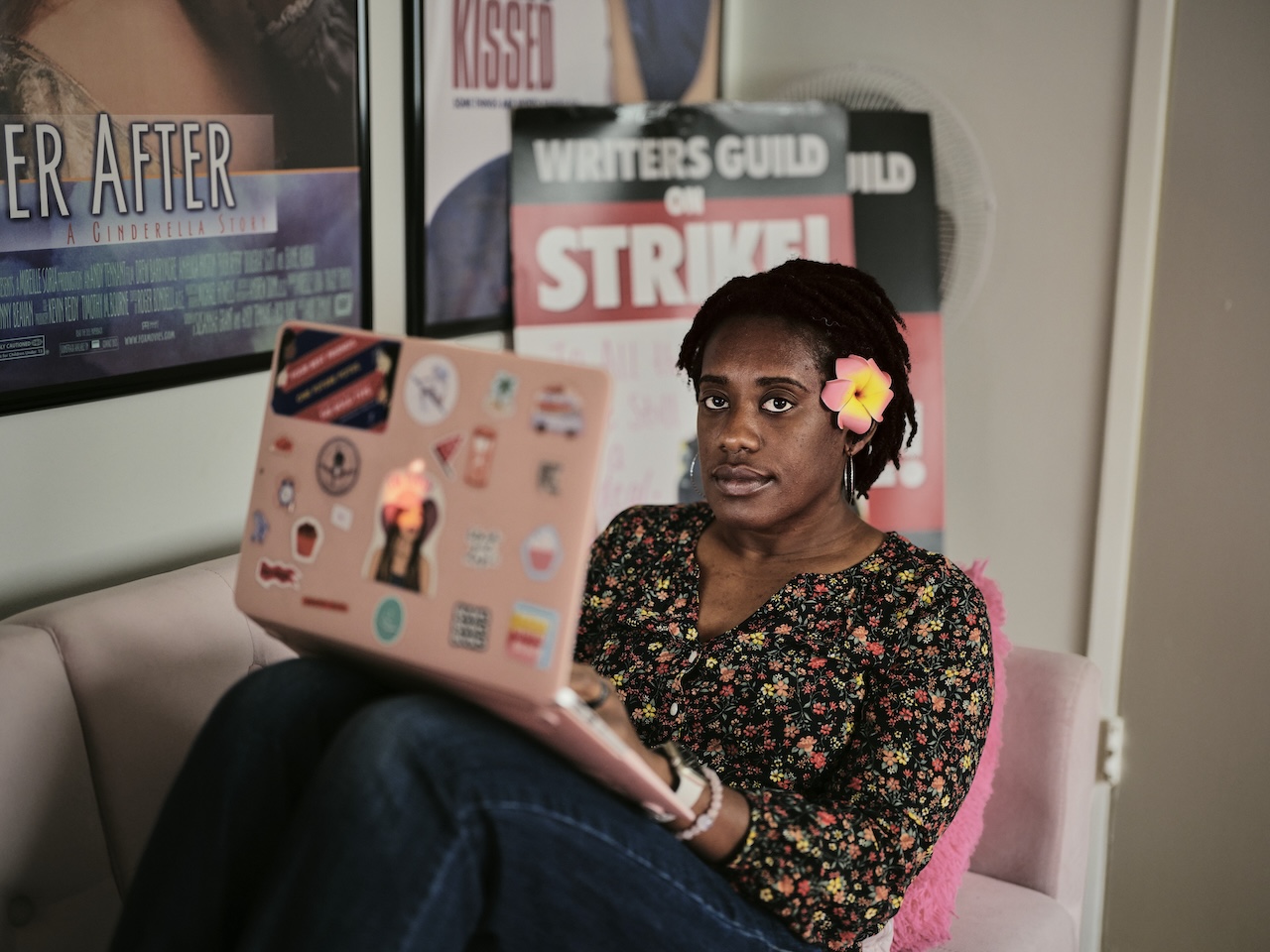Hollywood writers went on strike to protect their livelihoods from generative AI. Their remarkable victory matters for all workers. | Brookings

🌈 Abstract
The article explores the impact of generative AI, particularly ChatGPT, on the careers of Hollywood writers and the broader implications for society. It discusses the writers' concerns about AI potentially replacing or degrading their jobs, the potential threats to the diversity of storytelling, and the ethical questions around AI-generated content. The article also covers the Writers Guild of America's successful negotiation of historic protections against AI in their 2023 contract with Hollywood studios, and the lessons this holds for other workers and unions facing AI disruption.
🙋 Q&A
[01] Growing up in a working-class immigrant family and dreaming of a career in television
1. What was Danny Tolli's background and how did he get started in the TV writing industry?
- Danny Tolli grew up in a working-class immigrant family in Queens, New York and dreamed of a career in television from a young age.
- He studied film and television at New York University and worked his way up in Hollywood, starting as an assistant a decade ago and rising to a TV writer and co-executive producer today.
2. How did Tolli's background compare to the comfortable lifestyle he was able to achieve as a successful Hollywood writer?
- Tolli's career allowed him to achieve a much more comfortable lifestyle than the financial anxiety he experienced growing up with a single mother who was a social worker.
[02] The impact of generative AI on Hollywood writers
1. What were the key concerns of Hollywood writers about the impact of generative AI, particularly ChatGPT, on their careers?
- Writers feared that studios would use generative AI to replace writers and destroy the career ladder they had been climbing, threatening their livelihoods, economic security, and the diversity of storytelling.
- Specific concerns included:
- AI could be used to generate first drafts of scripts, reducing writers to just polishing and editing AI-generated content rather than creating original work.
- This could lead to smaller writers' rooms or the elimination of the writers' room altogether, undermining the structured career ladder that has defined TV writing in Hollywood.
- Reliance on AI-generated scripts could reinforce existing biases and lack of diversity in Hollywood's past writing.
2. How did the emergence of generative AI shift from being an obscure issue to a central rallying cry for the Writers Guild of America during contract negotiations?
- Initially, the Writers Guild did not see AI as an immediate threat, but included it as a priority in contract negotiations to build future protections.
- However, the studios' refusal to bargain over AI regulations sent a worrying signal to writers about studios' intentions, elevating AI to a central and existential issue for the writers.
- This united the writers around the threat of AI and was a key factor in their decision to go on strike in spring 2023.
[03] The Writers Guild of America's victory in securing historic AI protections
1. What were the key elements of the Writers Guild's victory in securing AI protections in their 2023 contract?
- The contract stipulates that it is up to the writers whether and how they use generative AI, and if used, the writers must get full credit and compensation.
- The contract includes regulations such as:
- AI cannot be used to write or rewrite literary material
- AI cannot be used as source material
- WGA-covered material cannot be used to train AI
- These protections were a historic first for any collective bargaining agreement.
2. What factors contributed to the Writers Guild's success in securing these AI protections?
- The writers' ability to quickly adapt and make AI a central negotiation priority as awareness of ChatGPT's capabilities spread.
- The writers' solidarity and willingness to go on a grueling 5-month strike, which was bolstered by support from other entertainment industry workers.
- The writers' leverage as an organized, unionized workforce in a high-profile industry, as well as the broader societal context of growing concerns about income inequality and corporate power.
[04] Lessons for other workers and unions facing AI disruption
1. What are the key lessons from the Writers Guild's experience that could apply to other workers and unions facing AI disruption?
- The importance of unions and collective bargaining in giving workers power to shape the deployment of new technologies like AI.
- The need for proactive, forward-looking approaches by unions to anticipate and address emerging technological threats.
- The value of worker solidarity and cross-industry collaboration in amplifying worker power.
- The limitations of the Writers Guild's success for non-unionized workers, highlighting the need for broader labor law reforms.
2. What are some policy and institutional changes that could help other workers and unions facing AI disruption?
- Reforms to labor laws to enhance worker voice and power, such as sectoral bargaining and worker co-determination.
- Opportunities for new forms of worker organizing and collaboration, including with civil society groups and policymakers.
- Voluntary adoption of worker-friendly AI deployment practices by employers, reinforced by public scrutiny and consumer/investor pressure.